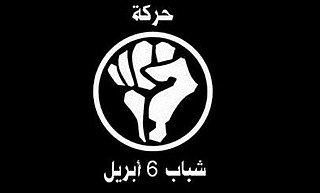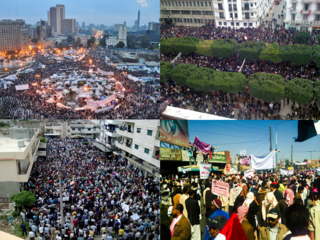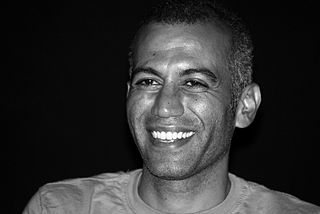
Youth activism is the participation in community organizing for social change by persons between the ages of 15–24. Youth activism has led to a shift in political participation and activism. A notable shift within youth activism is the rise of “Alter-Activism” resulting in an emphasis on lived experiences and connectivity amongst young activists. The young activists have taken lead roles in public protest and advocacy around many issues like climate change, abortion rights and gun violence. Different from past protest or advocacy, technology has become the backbone to many of these modern youth movements. It has been shown in multiple studies that internet use along with seeking information online is shown to have positive impacts on political engagement. Popular applications like Twitter, Instagram and YouTube have become the newest tools for young activist in the 21st century. Technology and the use of digital media has changed the way youth participate in activism globally, and youth are more active in media than older generations.

Media activism is a broad category of activism that utilizes media and communication technologies for social and political movements. Methods of media activism include publishing news on websites, creating video and audio investigations, spreading information about protests, or organizing campaigns relating to media and communications policies.

Alaa Ahmed Seif Abd-El Fattah, known professionally as Alaa Abd El-Fattah, is an Egyptian blogger, software developer and a political activist. He has been active in developing Arabic-language versions of important software and platforms. He was imprisoned in Egypt for allegedly organising a political protest without requesting authorization, though he was released on bail on 23 March 2014. He was rearrested and ordered released on bail again on 15 September 2014, subsequently sentenced to a month of jail in absentia, and received a five-year sentence in February 2015, which he was released from in late March 2019. El-Fattah remained subject to a five-year parole period, requiring him to stay at a police station for 12 hours daily, from evening until morning. On 29 September, during the 2019 Egyptian protests, El-Fattah was arrested by the National Security Agency and taken to State Security Prosecution on charges that were unknown as of 29 September 2019.

The April 6 Youth Movement(Arabic: حركة شباب 6 أبريل) is an Egyptian activist group established in Spring 2008 to support the workers in El-Mahalla El-Kubra, an industrial town, who were planning to strike on 6 April.
The term Twitter Revolution refers to different revolutions and protests, most of which featured the use of the social networking site Twitter by protestors and demonstrators in order to communicate:

The Egyptian revolution of 2011, also known as the 25 January Revolution, started on 25 January 2011 and spread across Egypt. The date was set by various youth groups to coincide with the annual Egyptian "Police holiday" as a statement against increasing police brutality during the last few years of Mubarak's presidency. It consisted of demonstrations, marches, occupations of plazas, non-violent civil resistance, acts of civil disobedience and strikes. Millions of protesters from a range of socio-economic and religious backgrounds demanded the overthrow of Egyptian President Hosni Mubarak. Violent clashes between security forces and protesters resulted in at least 846 people killed and over 6,000 injured. Protesters retaliated by burning over 90 police stations across the country.

The Arab Spring was a series of anti-government protests, uprisings, and armed rebellions that spread across much of the Arab world in the early 2010s. It began in response to oppressive regimes and a low standard of living, starting with protests in Tunisia. From Tunisia, the protests then spread to five other countries: Libya, Egypt, Yemen, Syria, and Bahrain, where either the ruler was deposed or major uprisings and social violence occurred including riots, civil wars, or insurgencies. Sustained street demonstrations took place in Morocco, Iraq, Algeria, Iranian Khuzestan, Lebanon, Jordan, Kuwait, Oman, and Sudan. Minor protests took place in Djibouti, Mauritania, Palestine, Saudi Arabia, and the Moroccan-occupied Western Sahara. A major slogan of the demonstrators in the Arab world is ash-shaʻb yurīd isqāṭ an-niẓām!.

The Revolutionary Socialists (RS) are a Trotskyist organisation in Egypt originating in the tradition of 'Socialism from Below'. Leading RS members include sociologist Sameh Naguib. The organisation produces a newspaper called The Socialist.

Hossam el-Hamalawy is an Egyptian journalist, blogger, photographer and socialist activist. He is a member of the Revolutionary Socialists and the Center for Socialist Studies.

Kamal Khalil is an Egyptian engineer and labour activist. He is a leading member of the Revolutionary Socialists, a representative of the Workers Democratic Party and the founder and director of the Center for Socialist Studies in Cairo. He is a critic of the social democrats, youth parties and the Muslim Brotherhood in the post-Mubarak Egypt. He advocates more workers' unity, particularly in regions such as El-Mahalla El-Kubra, which has in the past been a center of industrial struggle by textile workers. Khalil has said Egypt's workers must create independent trade unions and a political party to represent them: "No party will represent the workers other than the workers' party itself." Prior to the Egyptian Revolution of 2011, Khalil had been arrested many times. In 2003, he was arrested by the State Security Investigations Service (SSI) and placed in solitary confinement for his role in the anti-war movement, causing the Stop the War Coalition in Britain to demonstrate outside the Egyptian Embassy in London.

Mona Seif is an Egyptian human rights activist known for her participation in dissident movements during and after the 2011 Egyptian revolution, for her creative use of social media in campaigns, and for her work to end military trials for civilian protesters. She is a biology graduate student, investigating the BRCA1 breast cancer gene.

Wael Khalil is an Egyptian political activist known for his criticism of the Mubarak regime, his activity during the 2011 Egyptian revolution, and his blog WaELK.net which covers government, activism and sports.
Courtney Radsch is an American journalist, author and advocate for freedom of expression. She is currently the advocacy director for the Committee to Protect Journalists and author of Cyberactivism and Citizen Journalism in Egypt: Digital Dissidence and Political Change. She has written and been interviewed extensively about digital activism and social media in the Middle East since 2006.

Women played a variety of roles in the Arab Spring, but its impact on women and their rights is unclear. The Arab Spring was a series of demonstrations, protests, and civil wars against authoritarian regimes that started in Tunisia and spread to much of the Arab world. The leaders of Tunisia, Egypt, Libya, and Yemen were overthrown; Bahrain has experienced sustained civil disorder, and the protests in Syria have become a civil war. Other Arab countries experienced protests as well.
Mohammed Adel is an Egyptian political activist and a founder of the April 6 Youth Movement in Egypt. He has been active with the Kefaya movement since 2005 and is one of activists who called for a general strike on April 6, 2008. In 2009, Mohammed Adel became the April 6 movement's media spokesman. Between the time of the 2008 strike in Mahalla al-Kubra and the onset of the 2011 Egyptian Revolution, Mohemmad Adel enrolled in a training program directed by the Center for Non-Violent Action and Strategies, an entity founded by the Serbian pro-democracy youth movement Otpor!.
Sanaa Seif is an Egyptian activist and film editor who became actively involved in the Egyptian revolution in 2011. She was a student of language and translation at October 6 University until her arrest in 2014. She was granted a presidential pardon, along with 100 others, in September 2015.

The role of social media in the "Arab Spring", a revolutionary wave of demonstrations and protests in the Middle East and North Africa between 2010 and 2012, remains a highly debated subject. Uprisings occurred in states regardless of their levels of Internet usage, with some states with high levels of Internet usage experiencing uprisings as well as states with low levels of Internet usage.

Rawya Rageh is an Egyptian journalist and Senior Crisis Adviser for Amnesty International based in New York City. She was previously a broadcast journalist known for her in-depth coverage of notable stories across the Middle East and Africa, including the Iraq War, the Darfur crisis in Sudan, the Saddam Hussein trial, the Arab Spring, and the Boko Haram conflict in Northern Nigeria. Working as a correspondent for the Al Jazeera English network her contribution to the Peabody Award-winning coverage the network provided of the Egyptian Revolution of 2011 and the Arab Spring was documented in the books 18 Days: Al Jazeera English and the Egyptian Revolution and Liberation Square: Inside the Egyptian Revolution and the Rebirth of a Nation. The news story she broadcast on 25 January, the first day of the Egyptian Revolution of 2011, was selected by Columbia University Graduate School of Journalism as one of the "50 Great Stories" produced by its alumni in the past 100 years. In addition to her broadcast reporting, Rageh is an active social media journalist, recognized by the Washington Post as one of "The 23 Accounts You Must Follow to Understand Egypt" and by Forbes Middle East Magazine as one of the "100 Arab personalities with the most presence on Twitter."
The 2019 Egyptian protests consisted of protests by over two thousand people in Cairo, Alexandria, Damietta and other cities on 20, 21 and 27 September 2019 in which the protestors called for President Abdel Fattah el-Sisi to be removed from power. Security forces responded with tear gas, rubber bullets and, as of 23 October 2019, 4300 arbitrary arrests had been made, based on data from the Egyptian Center for Economic and Social Rights, the Egyptian Commission for Rights and Freedoms, the Arabic Network for Human Rights Information, among which 111 were minors according to Amnesty International and the Belady Foundation. Prominent arrestees included human rights lawyer Mahienour el-Massry, journalist and former leader of the Constitution Party Khaled Dawoud and two professors of political science at Cairo University, Hazem Hosny and Hassan Nafaa. The wave of arrests was the biggest in Egypt since Sisi formally became president in 2014.
Mariam Barghouti is a Palestinian-American writer, blogger, researcher, activist, commentator and journalist. She hails from Ramallah.
















